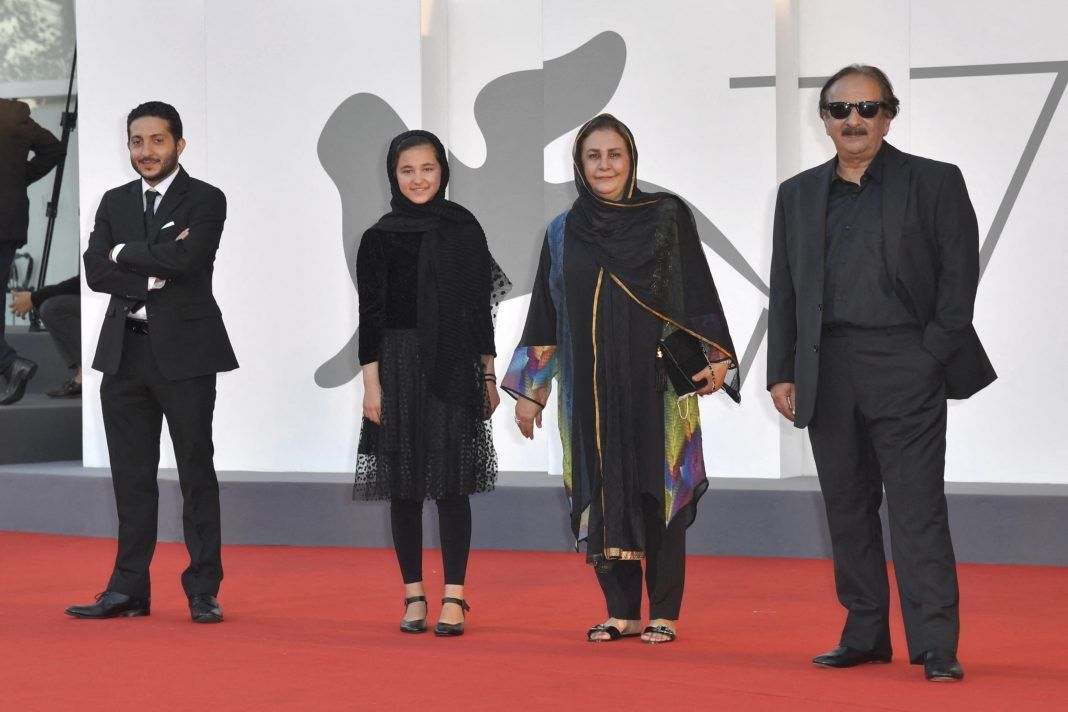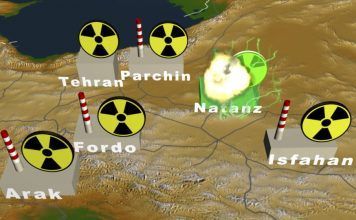By Ahmad Rafat
Iranian films were among the winners of the 77th International Venice Film Festival, which ran from 2 to Sept. 12 — and was the first international film festival to be held with a real audience since the coronavirus outbreak.
Iranian director Ahmad Bahrami’s Dashte Khamoush (“The Wasteland”) won the Orizzonti Award for Best Film. It also received the International Federation of Film Critics Award (FIPRESCI). The Orizzonti section of the festival runs parallel to the main international competition.
Ruhollah Zamani, a young Afghan actor, received the Marcello Mastroianni Award for Best Young Actor in Majid Majidi’s Khorshid (“Sun Children”).
Nasim Ahmadpour and Shahram Mokri were the winners of the Bisato d’Oro Critics’s Price for Best Original Screenplay — for Mokri’s film Jenayat-e Bi Deghat (“Careless Crime.”)
[aesop_image img=”https://kayhanlife.com/wp-content/uploads/2020/09/2018-11-07T120000Z_532496369_MT1IMGCNPBU89642323_RTRMADP_3_CHINA-BEIJING-2018-FILM-FOUNDATION-WUTIANMING-FILM-SUMMIT-MAJIDI-scaled.jpg” panorama=”off” credit=”FILE PHOTO: Iranian film director Majid Majidi. REUTERS./ ” align=”center” lightbox=”on” captionsrc=”custom” captionposition=”left” revealfx=”off” overlay_revealfx=”off”]
The festival ended on the very day that Iran executed Navid Afkari Navid Afkari, a 27-year-old champion wrestler who was charged with murdering a security guard at the Shiraz Water and Wastewater Management Company during the nationwide protests of 2018. Afkari was hanged hurriedly and secretly, without prior notice to himself, his family, or his lawyer.
Many people who had campaigned on social media for the Iranian Judiciary to overturn Afkari’s death verdict were surprised that none of the prizewinning Iranian filmmakers at Venice spoke about Afkari. Instead, some used the occasion to criticize the U.S. for imposing further sanctions on the Islamic Republic.
Ahmad Bahrami, who could not accept his award in person, sent a video message thanking the festival organizers and jury. “It is with great pride that I dedicate this award to the Iranian people, who live under hard conditions caused by unjust and politically motivated sanctions,” Mr. Bahrami said in his video message.
Fellow director Majidi also referred to “40 years of inhumane sanctions.”
The Iranian-Kurdish director, Bahman Ghobadi, whose films have been screened at the festival in previous years, called Majidi “the cultural spokesman for [Iran’s Supreme Leader Ayatollah] Ali Khamenei,” adding that “one cannot expect more from a filmmaker” who promotes the Iranian government.
[aesop_image img=”https://kayhanlife.com/wp-content/uploads/2020/09/2012-09-13T120000Z_818659176_GM1E89D0RBL01_RTRMADP_3_FILM-TORONTO-scaled.jpg” panorama=”off” credit=”FILE PHOTO: Director Bahman Ghobadi. REUTERS./” align=”center” lightbox=”on” captionsrc=”custom” captionposition=”left” revealfx=”off” overlay_revealfx=”off”]
“The money used to make propaganda films about the regime should be spent on building 1,000 schools in rural and disadvantaged regions of Iran, so children can study instead of peddling goods in the streets,” Ghobadi added.
Bahrami’s Dashte Khamoush was one of the better films at this year’s festival. His masterful use of black and white and long shots makes for atmospheric cinema.
The film’s plot is simple and complex at the same time. It tells the story of a brick factory in a remote region of the country. It is about poverty, isolation, and of a brighter future that never comes.
The film’s opening shot shows workers gathering in the factory yard to listen to their foreman, who delivers bad news. By the end of the film, the workers discover that the factory will be shut down. The news has a devastating impact on the workers and their families.
Despite receiving rave reviews, Majid Majidi’s Khorshid won no other awards besides the one for best young actor. Ruhollah Zamani, the actor in question, could not travel to Venice to accept his award because of COVID-19 travel restrictions.
In his Khorshid, Majidi tries to emulate the masters of Italian neorealism (1945-52) by resorting to over-the-top melodrama and overly dramatic music that diminish the film’s artistic value significantly.
Shahram Mokri’s “Jenayat-e Bi Deghat” leaves the audience depressed and exhausted. The film tells the story of four people who plan to burn a cinema that is showing a film about an unearthed and unexploded missile. The story is set against the backdrop of actual events in August 1978 in Abadan, a city in the southern provinces of Khuzestan, when individuals set fire to the Rex Cinema, killing some 400 people. However, the film is flawed, because the audience cannot connect the actual events of 42 years ago with the film’s fictional narrative.
Mokri belongs to the younger generation of Iranian New Wave cinema. Although his “Jenayat-e Bi Deghat” is an exciting and innovative cinematic montage, it does not measure up to his previous work “Mahi va Gorbeh” (Fish and Cat), which won the Special Orizzonti Award for innovative content at the 70th Venice International Film Festival in 2013.
French director Claire Denis chaired the Orizzonti section. Other jury members included Oskar Alegria (Basque filmmaker), Francesca Comencini (Italian director), Katriel Schory (Israeli film producer), and Christine Vachon (American film producer).
Australian actress Cate Blanchett chaired the jury in the main competition category. Other jury members included Matt Dillon (American actor), Veronika Franz (Austrian filmmaker), Joanna Hogg (British filmmaker, screenwriter), Nicola Lagioia (Italian writer), Christian Petzold (German director), and Ludivine Sagnier (French actress).
This article was translated and adapted from Persian by Fardine Hamidi.








